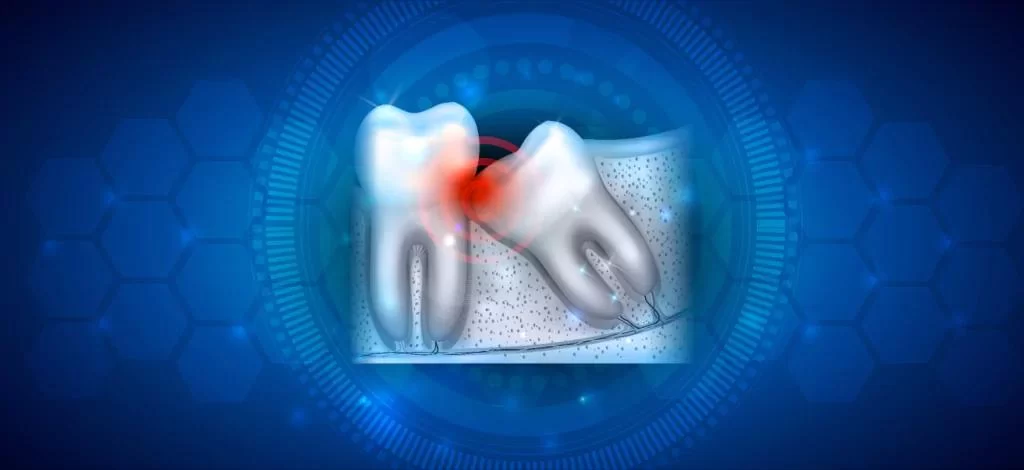
Should I Get My Wisdom Teeth Removed If They’re Not Causing Problems? Understanding the Pros and Cons
- 1. Understanding Wisdom Teeth and Their Role
- 2. When Should You Consider Removing Wisdom Teeth?
- 3. Risks of Keeping Your Wisdom Teeth
- 4. The Pros of Removing Wisdom Teeth
- 5. The Cons of Removing Wisdom Teeth
- 6. Real-Life Stories: Should You Remove Your Wisdom Teeth?
- 7. Making the Decision: To Remove or Not to Remove?
1. Understanding Wisdom Teeth and Their Role
Wisdom teeth are the third set of molars located at the back of your mouth. These teeth typically emerge between the ages of 17 and 25. For some, wisdom teeth cause no issues at all, while others experience pain, infections, or alignment problems. But what if your wisdom teeth are not causing any problems? Should you still consider getting them removed?
2. When Should You Consider Removing Wisdom Teeth?
In many cases, dentists recommend wisdom teeth removal even if they are not causing pain. However, this decision depends on various factors. Below are a few situations where you might consider wisdom teeth removal, even if they aren’t causing noticeable issues.
2.1. Potential for Future Problems
Wisdom teeth can sometimes remain dormant for years before causing problems. Dentists often recommend early removal to prevent potential future complications such as infections, tooth crowding, or cysts forming around the tooth. If your wisdom teeth are likely to cause issues down the line, removing them proactively can save you from bigger problems in the future.
2.2. Impaction or Misalignment
Even if your wisdom teeth aren't currently causing problems, they may be impacted (unable to fully emerge) or misaligned. This can put pressure on surrounding teeth and result in pain, even if the discomfort isn’t immediate. In some cases, impacted wisdom teeth can even cause gum infections or cavities in adjacent teeth.
3. Risks of Keeping Your Wisdom Teeth
While keeping your wisdom teeth may seem like an easy choice, there are potential risks associated with leaving them in place. Some of these risks include:
3.1. Infection
If your wisdom teeth only partially erupt or are misaligned, they can create a pocket that traps food and bacteria. This can lead to gum infections, swelling, and pain.
3.2. Crowding of Other Teeth
In some cases, the pressure from wisdom teeth can lead to misalignment or crowding of nearby teeth. This can impact your bite and potentially undo years of orthodontic work.
3.3. Cysts and Tumors
In rare cases, the growth of wisdom teeth can result in the formation of cysts or even tumors. These growths can cause damage to the surrounding bone and teeth. While this is uncommon, it's something to consider if your wisdom teeth are left in place for too long.
4. The Pros of Removing Wisdom Teeth
Removing your wisdom teeth, even if they’re not currently causing pain, comes with several advantages:
4.1. Prevent Future Complications
One of the most significant benefits of removing wisdom teeth early is preventing future issues. By removing them before they cause pain or damage, you reduce the risk of complications such as infections, misalignment, or tooth crowding.
4.2. Easier Recovery
Removing wisdom teeth at a younger age can lead to a quicker and easier recovery. Younger patients tend to heal faster and experience less swelling compared to older patients.
4.3. Avoid Painful Symptoms
Even if your wisdom teeth aren’t causing pain now, they might in the future. By removing them early, you avoid the possibility of sudden toothaches, infections, or other painful symptoms.
5. The Cons of Removing Wisdom Teeth
Despite the benefits, there are some downsides to removing wisdom teeth, especially if they aren’t causing problems:
5.1. Surgical Risks
As with any surgical procedure, there are risks associated with removing wisdom teeth. These can include infection, nerve damage, or complications from anesthesia. While these risks are rare, they are something to consider before deciding to undergo surgery.
5.2. Cost and Time
Wisdom teeth removal is a surgical procedure that can be expensive, especially if you don’t have insurance coverage. Additionally, recovery time can take a few days to a week, during which you may experience swelling, bruising, and limited mobility.
5.3. Unnecessary Procedure
If your wisdom teeth are healthy and not causing any problems, removing them could be seen as an unnecessary procedure. This decision should be made carefully, as some people may feel that it’s better to avoid surgery if there’s no immediate need for it.
6. Real-Life Stories: Should You Remove Your Wisdom Teeth?
Many people are faced with the question of whether to have their wisdom teeth removed, even if they’re not causing problems. Here are a couple of real-life examples:
Case 1: Emma’s Preventive Removal - Emma, 23, had no pain from her wisdom teeth, but her dentist recommended removal because her teeth were beginning to crowd. After the procedure, Emma healed quickly and avoided potential alignment issues in the future.
Case 2: Tom’s “Wait and See” Approach - Tom, 29, decided to keep his wisdom teeth since they weren’t causing any pain. Years later, he developed an infection in one of the wisdom teeth, requiring an emergency extraction. Tom now wishes he’d had them removed sooner to avoid the pain and cost.
7. Making the Decision: To Remove or Not to Remove?
The decision to remove your wisdom teeth, even if they aren’t causing problems, is a personal one. You should consider factors like age, the health of your teeth, and the potential for future complications. If you're unsure about what to do, consulting with your dentist is the best way to assess your situation and make an informed choice.
If you’re considering wisdom teeth removal, visit Dentistry Toothtruth for more information and professional guidance to help you make the best decision for your oral health.







 Eastern Dental3.0 (336 review)
Eastern Dental3.0 (336 review) Dental Arts of South Jersey4.0 (468 review)
Dental Arts of South Jersey4.0 (468 review) Uchida Clyde Y DDS3.0 (9 review)
Uchida Clyde Y DDS3.0 (9 review) Ocean Dental4.0 (141 review)
Ocean Dental4.0 (141 review) Hanson Place Dental1.0 (441 review)
Hanson Place Dental1.0 (441 review) Maple Family Dental of Libertyville5.0 (165 review)
Maple Family Dental of Libertyville5.0 (165 review) The Importance of Oral Health Education During Pregnancy for a Healthy Pregnancy
The Importance of Oral Health Education During Pregnancy for a Healthy Pregnancy Best Tips for Brushing Your Teeth Properly for Healthy Gums: Essential Techniques for Oral Health
Best Tips for Brushing Your Teeth Properly for Healthy Gums: Essential Techniques for Oral Health Why Skipping Dental Checkups Can Lead to Bigger Oral Health Problems
Why Skipping Dental Checkups Can Lead to Bigger Oral Health Problems Advantages of Porcelain Dental Restorations
Advantages of Porcelain Dental Restorations How Can Diabetes Cause Tooth and Gum Problems? Preventing and Managing Oral Health Issues
How Can Diabetes Cause Tooth and Gum Problems? Preventing and Managing Oral Health Issues Healthy Habits for Promoting Good Oral Health and Hygiene: Tips for a Healthy Smile
Healthy Habits for Promoting Good Oral Health and Hygiene: Tips for a Healthy Smile